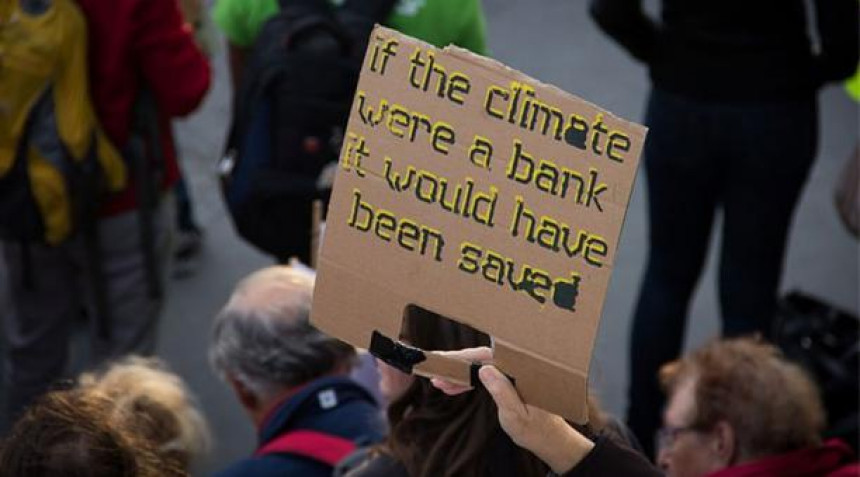
From Friends of the Earth, we consider the Paris agreement a sham. Surely you will agree with our assessment if you think that an agreement on climate change, to be considered a success, must contain the necessary tools to curb warming, and if not, it will not work, however much all countries have signed. This view coincides with that of leading climate scientists who have spoken about the agreement. Below we present our interpretation in detail.
Tug of war in the process
At the summit, in the final drafts prior to the approval of the text, there was much more robust references to social rights and an ambitious agreement; in fact, until the penultimate draft it had timeframes and specific mitigation targets, CO2 emissions reduction, references to the "decarbonisation" of the economy and the eradication of fossil fuels. From within Friends of the Earth, we have seen how the demands of countries like Saudi Arabia managed to remove these vital tools.
The negotiations did not contemplate a deal until the end. In fact the text as presented was not definitive. At the last minute, waiting with all participants in plenary, the United States pressed and managed to reduce a reference to the industrialized countries of "should", "will try". That is, the degree of obligation of rich countries to take action was lessened.
Social rights in the bin
A fair, ambitious and binding agreement should include various rights related to the universal elements: recognizing the gender perspective in the climate challenge, recognize human rights and, therefore, the recognition of the rights of the displaced and climate and environmental refugees; eventually it should have recognized a just transition for workers in the old energy model into decent jobs in a sustainable economy.
All these points have come out of the text, again under pressure from countries that do not recognize international agreements such as the Charter of Human Rights. In turn it means that countries which say they are more progressive and guarantors of social rights have given way to what should be red lines.
Is it a historic agreement?
Only the negotiators who have suffered eight years of technical negotiations with harsh rebuke and an agonizing end could say so, as it is not the role of the NGOs to call it historic. The key to having both small islands without resources and already run out of drinking water agree with great powers who defend tooth and nail coal or free trade without restrictions related to environmental regulation, is whether the agreement is sufficiently empty.







